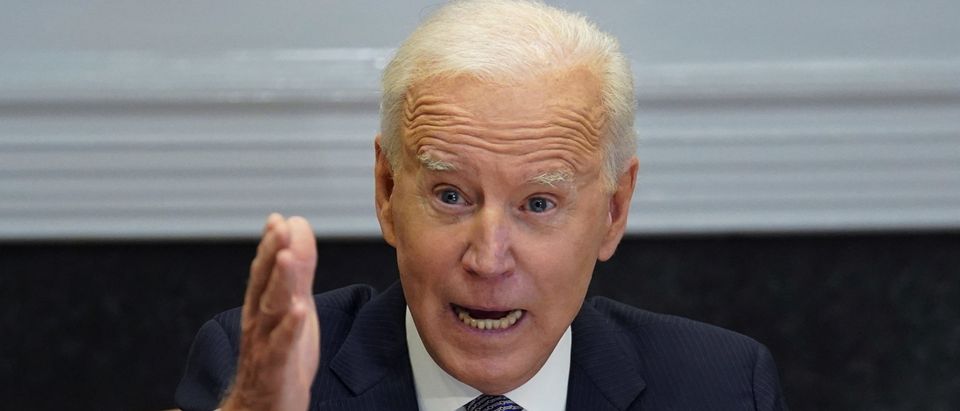President Joe Biden’s administration announced “strong support” for a Democratic push for D.C. statehood in a statement on Tuesday, putting its weight behind a long-time dream of the Democratic Party.
House Speaker Nancy Pelosi is expected to bring the bill, H.R. 51, to a vote this week, where it will almost certainly pass. The bill faces much more robust opposition in the Senate, however. If signed into law, the bill would create “Washington, Douglass Commonwealth” as the 51st state while maintaining a separate federal district.
“For far too long, the more than 700,000 people of Washington, D.C. have been deprived of full representation in the U.S. Congress. This taxation without representation and denial of self-governance is an affront to the democratic values on which our Nation was founded,” the administration argues, adding that the representation is “long overdue.” (RELATED: Does DC Statehood Require A Constitutional Amendment, Or Can Congress Pass It Via Legislation? It’s Complicated)
Biden admin announces support for making Washington DC the nation’s 51st state, creating the state of “Washington, Douglass Commonwealth…” ie Frederick Douglass. pic.twitter.com/DtdpQVLk4A
— Jim Acosta (@Acosta) April 20, 2021
“Establishing the State of Washington, Douglass Commonwealth as the 51st state will make our Union stronger and more just,” the statement continued. “The Administration calls for the Congress to provide for a swift and orderly transition to statehood for the people of Washington, D.C.”
The push to declare certain areas of D.C. a new state is fraught with constitutional questions as well. The founders wrote into the constitution that the land ceded by Virginia and Maryland to become the U.S. Capital city should not exceed 10 square miles. Democrats argue that because the Constitution does not call for a minimum size, only a maximum limit, that certain areas of Washington could be turned into a state while maintaining a smaller federal district.
Republicans argue that the push for statehood is a partisan attempt to gain two additional Democratic senators in Congress as well as a Democratic representative in the House. They also argue turning D.C. into a state via legislation in Congress is unconstitutional on multiple counts.
First, they argue Maryland and Virginia ceded the land for the express purpose of creating the seat of American government, and that land cannot be retroactively turned into a state simply due to a lack of minimum size.
Second, they point to the 23rd Amendment, which gave Electoral College votes to the District of Columbia to participate in presidential elections. H.R. 51’s current language would shrink the federal district within the “new state” to such a size that it would only have hundreds of actual residents, including the sitting president and his family, giving their votes vastly greater influence than anywhere else in the country. Those electoral votes were granted to D.C. via constitutional amendment, and they argue those votes couldn’t be rescinded without a competing amendment.


